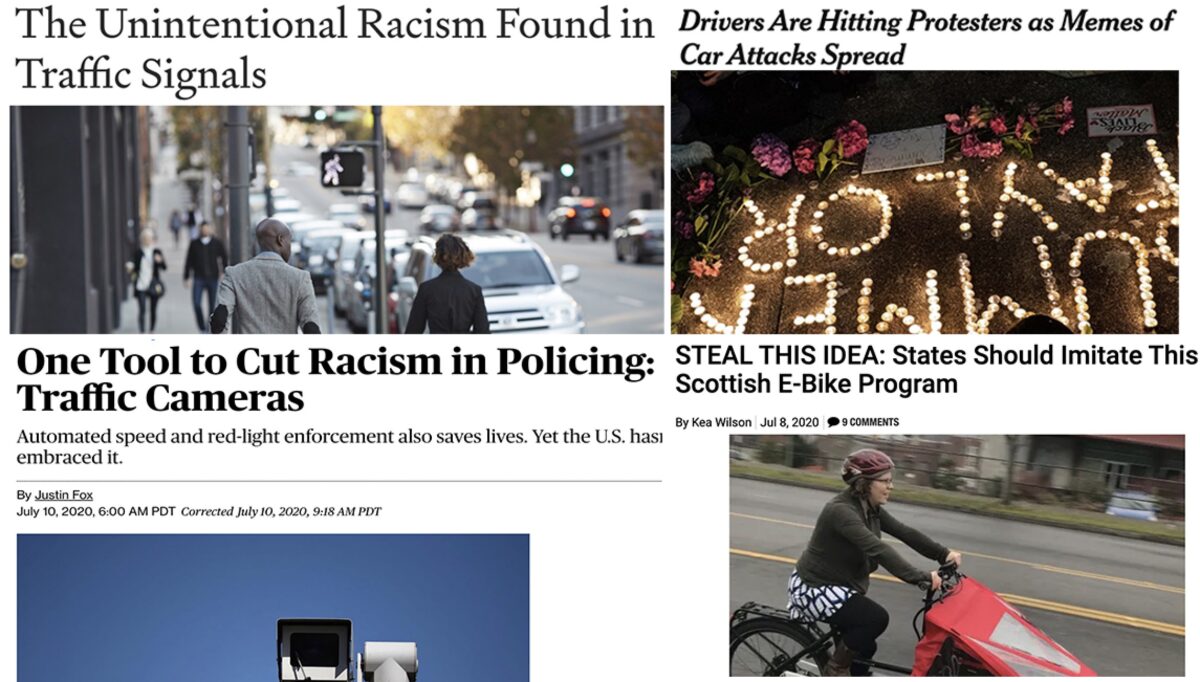Here are the most notable stories we came across in the past seven days…
That NY Times article: A widely shared and visually stunning NY Times opinion piece about banning cars in cities showed how far the once-bold idea of carfree/low-car cities has come thanks in part to the pandemic and demands for more public space. But the article also touched off a debate from some urbanists who saw it as just another example of top-down visioning that erases the lived experience of Black people and criticized its failure to mention how racist policies and the lives of people with disabilities might be intertwined with and influenced by such a dramatic re-structuring of public space. (See #BanWhiteUrbanism and tweets from @bambinoir and @defergusson on Twitter.)
https://twitter.com/dfergusson/status/1281741294222495745
Rent a fiets: A Dutch company Forbes calls the “Netflix of Bikes” has expanded from its home country into London, Milan and Paris.
Traffic signals and racism: A writer from New York City shares how he feels a sting of racism from the “little white man” that “allows” people to cross at traffic signals.
From meme to murder: Interesting how the rise in memes and bumper stickers making light of running people over seems to be leading to more running people over. It’s almost as if we should take violent rhetoric and “jokes” seriously.
E-bike grants: Scotland gets it. E-bikes are the killer app when it comes to urban transport and governments should be doing much more to subsidize them.
Advertisement
Lower risk: A bike insurance company will reduce rates for e-bike-owners after finding that they are lower-risk than non-e-bikers.
White supremacy in bike advocacy: The leader of the 10,000-plus member San Francisco Bicycle Coalition acknowledged failure in addressing racism in a strong statement about how he plans to steer the organization into being truly antiracist in the future.
Crash reporting guide: Former editor of Bicycling Magazine Peter Flax published a comprehensive list of tips for reporters to cover crashes with more accuracy and sensitivity.
Helmets, not for what you think they are: “We do not design helmets specifically to reduce chances or severity of injury when impacts involve a car,” a product designer from Giro told Forbes in an article that has re-ignited our favorite debate.
Cameras can help: A Bloomberg reporters delves into the politics and data and comes out thinking that increased use of automated traffic enforcement cameras would decrease potential for racists policing.
— Jonathan Maus: (503) 706-8804, @jonathan_maus on Twitter and jonathan@bikeportland.org
— Get our headlines delivered to your inbox.
— Support this independent community media outlet with a one-time contribution or monthly subscription.


